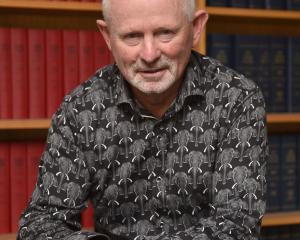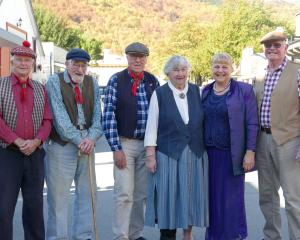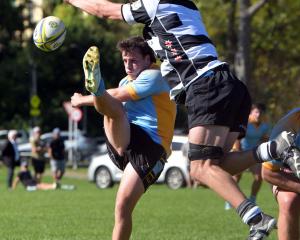
However, Cr Michael Laws said he would prefer to support a potential hike in adult fares, because he did not want to "victimise small children".
Councillors yesterday approved changes to Otago’s draft regional public transport plan, due to be consulted on this winter.
Chief executive Richard Saunders said the Otago Regional Council was trying to respond to the message it received from the government via the NZ Transport Agency Waka Kotahi (NZTA) to "take action" on increasing the share of private revenue, rather than public money, used to fund buses.
He said staff had informed the NZTA Otago’s regional public transport plan process was under way and to make "arbitrary decisions" midway through that process would not be proper.
At yesterday’s council meeting the choice in front of councillors boiled down to proposing an increase in adult fares from $2 to $2.50, or an end to the 100% concession offered to children aged 5 to 12 years old in the forthcoming consultation.
"Given that you’ve placed me in a position where I’m manacled and have to do something — I’m choosing between evil and evil — I would choose the evil in which we don’t victimise small children," Cr Laws said.
Cr Laws said if the price for a child’s bus fare increased to $1.50 per trip, it could cost $3 a day, or $15 a week for one child per family to get to school for about 40 weeks a year.
"The practical effect of that could be potentially catastrophic for families in Dunedin in particular."
Councillors were told NZTA sought an urgent response from the council late last year about increasing its private share of public transport revenue and "to enable some preliminary discussions" staff informed the agency it could increase its 18.7% private share in the last financial year to 20% this year, 25% next year and 30% for 2026-27.
Cr Alan Somerville questioned the response.
"Is it realistic and feasible to propose those targets of private share when we don’t actually have a plan at this stage for reaching those targets?"
Mr Saunders said the plan to reach the targets would be developed through the public transport plan process.
Councillors also heard the proposal to increase adult fares would increase costs for teenage bus users as well.
At present youth receive a 40% concession in Dunedin and 25% in Queenstown.
The report councillors discussed yesterday had a range of options to consider in future, including creating zones for longer trips that required higher fares and selling advertising space on buses or at stops.
Cr Kate Wilson suggested local councils could play a role in increasing the private share of revenue if they encouraged more people to take the bus by hiking car parking fees.
After the meeting, public transport advocate Cr Elliot Weir issued a statement that said it was clear no councillors wanted "to burden working families just trying to get their kids to school in a cost-of-living crisis".
"I’m comfortable with us taking some simple fare zones out to the community for consultation, as well as any modest well-reasoned fare increases we may land on ... But you can only increase fares so much before people simply stop taking the bus.
"The only way to maintain strong private revenue shares is to not focus on arbitrary targets but instead focus on building a really strong bus network. Make it a more convenient and affordable choice than driving and the fare revenue will come.












